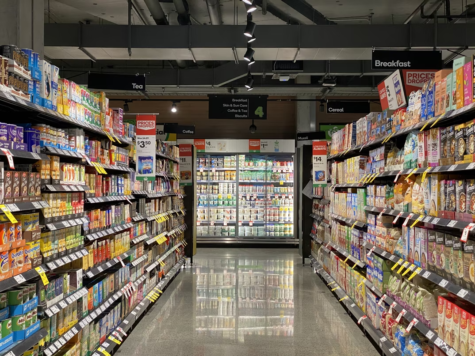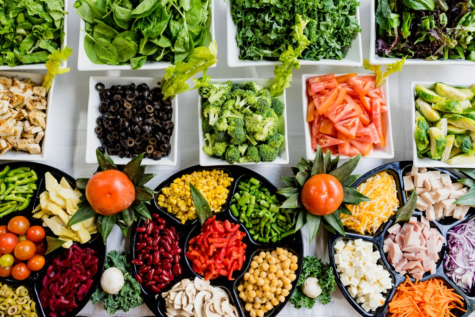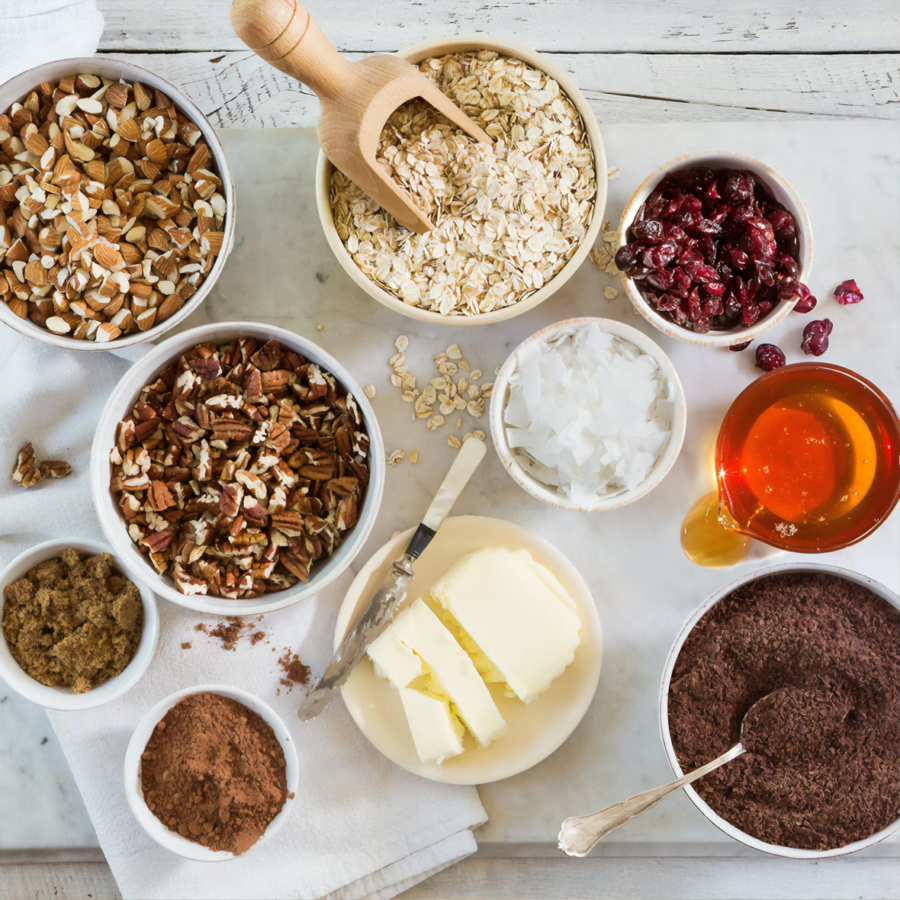Healthy Food is Not So Healthy
Do not just look at the advertising label because they do not tell you the whole truth.
americanheritagechocolate / Unsplash
Even though food companies pass off many foods as healthy food, many are not healthy for your body.
Navigating through the aisle of the grocery stores to search for healthy snack options has become an increasingly challenging matter. No cholesterol, no added sugar, multigrain, all-natural, organic, and gluten-free may seem to scream healthy, but reality proves it to be far from the truth.
“When I go shopping I usually look at the wording because that’s where companies try to trick you,” said Sharmin Rahman ’22.
People often believe that just because something has a healthy term on the label or is sold at a “healthy food shop,” it must be healthy. However this isn’t always the case.
Many foods are passed off as healthy by their companies, but are not good for your body. These products are high in sugar and filled with high sodium and artificial flavor which are hazardous to one’s health.
“I think one of the biggest misconceptions people have about healthy eating is in thinking these so-called cereal or energy bars and drinks are a good choice, and most are definitely not,” said Lona Sandon, MEd, RD, a spokeswoman for the American Dietetic Association in an interview with WebMD.

Foods that fool you into thinking they are healthy
Granola Bar: Granola bars have been marketed as healthy food for a decade. Although granola bars are nutritious to some extent, many are loaded with added sugar, calories, and artificial ingredients.
“Granola got a reputation as a health food in the 1960s, because it was in fact, healthier than the heavily sugared, frosted cereals that were being sold,” Heller tells WebMD. “But by today’s standards, in terms of fats and just sheer calories, granola is not your healthiest choice.”
For example, Kellogg’s Nutri-Grain Harvest granola bars contain up to 15 grams of sugar per serving which is equivalent to approximately 4 teaspoons. Studies have shown that consuming excess added sugar can contribute to several chronic conditions such as obesity, diabetes, heart disease, and fatty liver.
Furthermore, scientists at the National Institute on Drug Abuse in the United States have discovered that sugar produces brain alterations comparable to those seen in persons addicted to substances like cocaine and alcohol.
Protein drinks and bars: Protein drinks and bars are very popular snacks mainly because they are a quick way to add protein to our diet. However, the question is do you need it? Many people who maintain a balanced diet don’t need to consume these protein supplements. You may ask “why”? Isn’t protein a good thing for our body?
Shuwen Li ’22, who took Nutritional Science at Bronx Science, explained that, “Yes, protein is beneficial for our bodies, but there is no benefit to eating too much of it. By consuming these supplements, protein is not the only thing you are getting. Your body also takes in calories, sugar, and fat and too much of these are very harmful to your body.”
Research has shown that for people with liver or kidney issues, eating too much protein can further damage these organs. The human body has a limit to the amount of protein that can be absorbed (8-10g per hour). As a result, when you consume too much protein, it isn’t effectively metabolized and waste can build up in your system.

Gluten-free snack foods: Gluten-free snacks are mainly recommended for those who are sensitive to gluten and those who suffer from diseases such as celiac disease, Type 1 diabetes, and HIV-associated enteropathy. However, nowadays it has become a trend.
Studies have shown that gluten-free foods contain less protein, fiber, and certain vitamins and minerals than their gluten-containing counterparts. This is harmful as in a study performed by the National Institutes of Health, it found that the higher the gluten content in one’s diet, the lower the risk of developing diabetes. Furthermore, fiber, vitamins, and minerals included in gluten diets were found to be helpful to the participants’ overall health. Eating too many gluten-free snacks can be detrimental to someone’s health. So it’s best to follow what your body needs instead of following through an unnecessary trend.
Breakfast cereal: It is a part of our daily routine. It’s almost hard to imagine starting our day without a bowl of cereal and milk. However what we don’t know is that these cereals are loaded with sugar, refined carbs, and lack proper nutrients like protein and fiber. For example, Honey Nut Cheerios, which is considered to be a healthy breakfast cereal, contains 12 grams of added sugar per cup. Starting our day eating such high sugary food isn’t good for our health as continuously eating this can increase the risk of developing type 2 diabetes, heart disease, and cancer. These sugary cereals don’t provide enough energy and can further lead to sugar crashes and people relying on caffeinated drinks. They are “part of a nutritious breakfast” myth.
Do Not Just Read the Front Cover
So how do you avoid being tricked? Don’t be fooled by food labeling. Instead of reading just the front cover, dive deeper and look at the back labeling. Look at the nutrition value. Take into consideration the serving sizes. Though a food may look healthy at first glance, in reality, it’s loaded with fat, high calories, sugar, and sodium.
Look Around
In this era of technology it’s really easy to get tricked into buying all sorts of “healthy food.” We get so confused by the food marketing and trying to follow through the trend that it easily slips through our mind that there are plenty of healthy foods around us. Fresh vegetables, beans, meats and fish are highly nutritious and give our body a variety of sources of protein. It’s a much healthier option than eating all sorts of “health foods” that are just an illusion created by the marketing companies.
So, instead of trying to fill your diet with “health foods,” try adding vegetables, fruits, beans, and fish to your diet for a much healthier and safer option.
Shuwen Li ’22, who took Nutritional Science at Bronx Science, explained that, “Yes, protein is beneficial for our bodies, but there is no benefit to eating too much of it. By consuming these supplements, protein is not the only thing you are getting. Your body also takes in calories, sugar, and fat and too much of these are very harmful to your body.”
Tasnim Tamanna is a Staff Reporter for 'The Science Survey.' Tasnim finds journalism to be appealing because she loves to tell stories through her articles....

